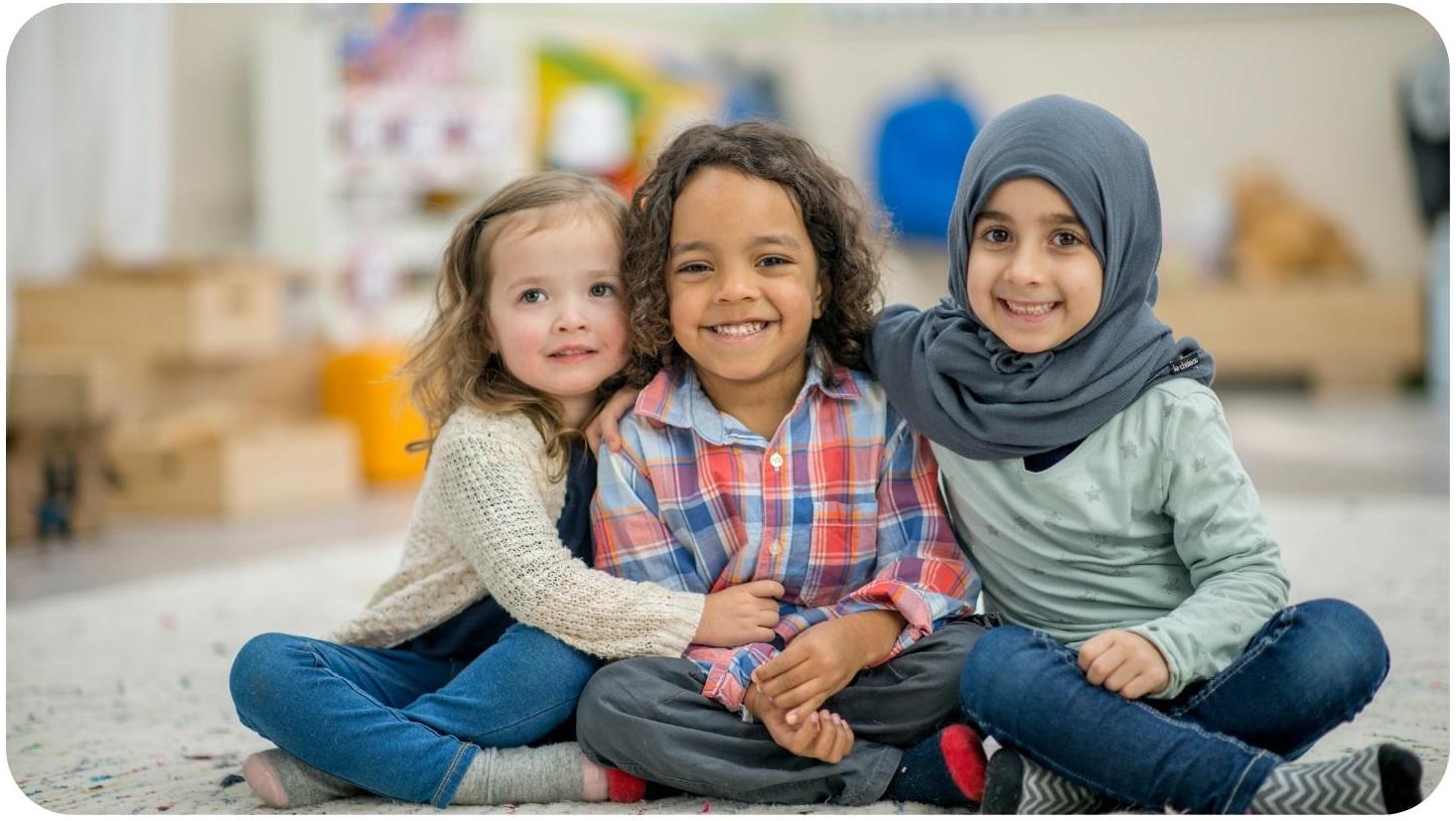Dear CDA Families,
It’s hard to believe that we are already over one month into the New Year and my hope is that you and your family remain well and in good health. As we continue to push through these challenging times, parents and caregivers continue juggling many different hats: full-time parents, teachers, employees, etc.
On the other hand, children, more than ever, are overwhelmed with information, such as current events that deal with a global pandemic, race relations, violence, and so on. Unfortunately, we can’t ignore the sad truth that we live in a world where racism and other forms of bias occur and that our children may experience.
I want my children to grow up feeling accepted and loved, in a world free from discrimination and hate. As parents, how can we help our children make sense of the world we live in and teach them about cultural sensitivity? They will look to us for reassurance and guidance.

Cultural sensitivity is about having a set of skills that allow us to understand and learn about people whose cultural background is not the same as our own.
It does not mean that we become an expert in all things related to culture. Rather it means that we are willing to have an honest dialogue and lead our interactions with others with both empathy and understanding.
We are fortunate to live in a country where so many cultures are represented, giving us many opportunities to learn and value the differences among us. In addition, our children are never too young or too old to learn about cultural diversity.
Children as young as 2 can become aware of differences as it relates to gender, race, ethnicity, and disability. They can develop both positive and negative biases to these characteristics of identity, as it is reflected by their family and/or overall environment.
Below are some tips and resources:
- Provide a safe place where your child is encouraged to ask questions and feels confident to talk about their feelings. This teaches your child that it’s okay to notice differences and talk about them.
- Get comfortable with being uncomfortable. Many people are uncomfortable talking about differences as it relates to gender, race, ethnicity, and disability, but this is how we help our children talk about issues early on and help them learn the importance of being fair and kind to all people.
- Be mindful. You are your child’s most important teacher. What you say is important, but what you do is most likely to have a bigger impact.
- Know your own bias. Whether we want to admit it or not, we all have biases, feelings and/or attitudes about others that may affect how we think and make decisions. It’s important to be aware so we avoid passing these views unto our children.
- Books are a great resource for helping children learn and develop a sense of their own identity, as well as an understanding of other ethnic backgrounds. Visit your library for books such as:
- I Am Enough by Grace Byers
- Change Sings by Amanda Gorman
- Milo Imagines the World by Matt de la Peña
- Tomatoes for Neela by Padma Lakshmi
- Whoever You Are by Mem Fox
- What If We Were All the Same by C.M. Harris
- Exposure and actual experiences to other cultures has a profound influence:
- Encourage friendships that are cross-racial.
- Connect with families of different backgrounds by joining groups or workshops in a different neighborhood or school.
- Attend cultural events that are offered free or low-cost by most communities.
As adults, we have the great task of raising up a generation that is aware and sensitive and knows the value of diversity. But fear and discomfort can prevent people—adults and children alike—from appreciating that gift. By modeling in our own lives, we can teach children to respect and value people regardless of the color of their skin, their physical abilities, or the language they speak. It is not always easy, but it is possible. To learn more, click the links below:
Anti-Racism For Kids 101: Starting To Talk About Race | booksforlittles.com
Your Kids Aren’t Too Young to Talk About Race: Resource Roundup | prettygooddesign.com
Zero to Three: Resource to Talk to Young Children About Racism | zerotothree.org
Anti-Racism for Kids: An Age-by-Age Guide to Fighting Hate | parents.com
Additional Resources
- CalEITC4Me
If you are a parent earning $30,000 or less per year, you may be eligible for a cashback tax refund that can help pay for unexpected expenses. Visit CalEITC4Me.org to learn more. - Give Kids A Smile Program
The San Diego County Dental Society invites families to participate in Give Kids A Smile 2022. Dental screenings, sealants, and fluoride varnish will be provided at no cost! Kindergarten Oral Health Assessment screenings will also be provided for free. Visit the website to find a participating dental office. This program is for children 1-18 years of age at participating offices February 14 – March 7, 2022. Have questions? Need assistance? Call 619-692-8858. Appointments Only. - The California Health Minds, Thriving Kids Project provides a series of free, evidence-based video and print resources that caregivers and educators can use to teach their kids critical mental health and coping skills. The project was born of an innovative partnership between the state of California and the Child Mind Institute.
- Community Through Hope
CTH’s Diaper Bank carries sizes 1-6. You can stop by once a week to pick up diapers. Open Monday – Friday from 9-4pm. Address: 465 C St., Chula Vista, CA 91910. Phone Number: 619-947-6002.
Upcoming Events
We have some exciting workshops lined up throughout the year! For a list of upcoming vents, visit our Workshops page using the button below:
Family Resources
For individualized assistance with resources or referrals, please contact our Family Resources Team via the contact form on our workshops page:





